From Pyongyang To Gangnam: The Ex-N. Korean Diplomat On The Ballot In Seoul
For decades, Thae Yong Ho served the Democratic People's Republic of Korea, rising to become Pyongyang's deputy ambassador to London before defecting.
Now he is standing for election in South Korea's multi-party democracy.
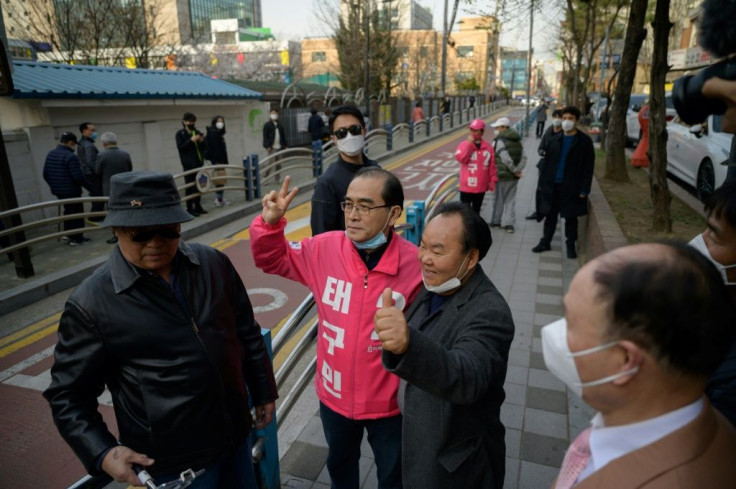
If he wins his constituency in Gangnam, the wealthy Seoul district made famous by rapper Psy, Thae will become the first former Northern official ever to be directly elected to South Korea's parliament.
And he believes it would send an unmistakable message to the upper echelons of which he was once part -- that abandoning Kim Jong Un's regime could open up a different path for the country.
"I want to tell them that there is a new way for their future," Thae said.
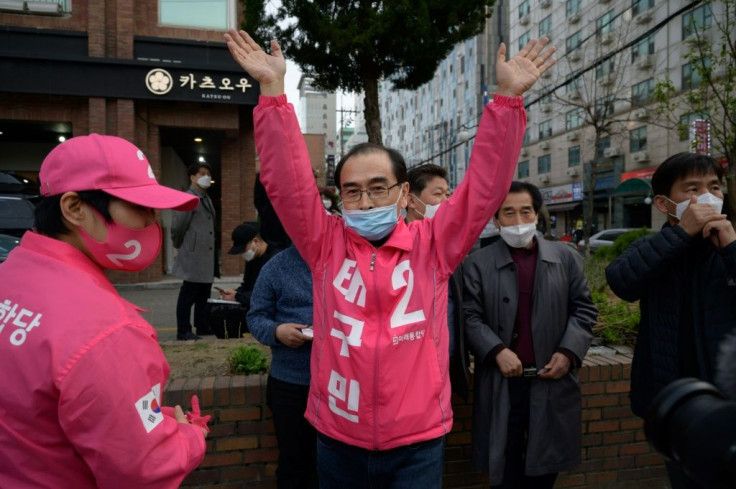
The general assumption in Pyongyang, he explained, is that "if Korea is reunited under the concept of freedom or democracy", those who have previously served the Kim family "must be the target of the purge".
"I'm sure once we can change the minds of the elite group in North Korea, we can easily bring down the Kim system."
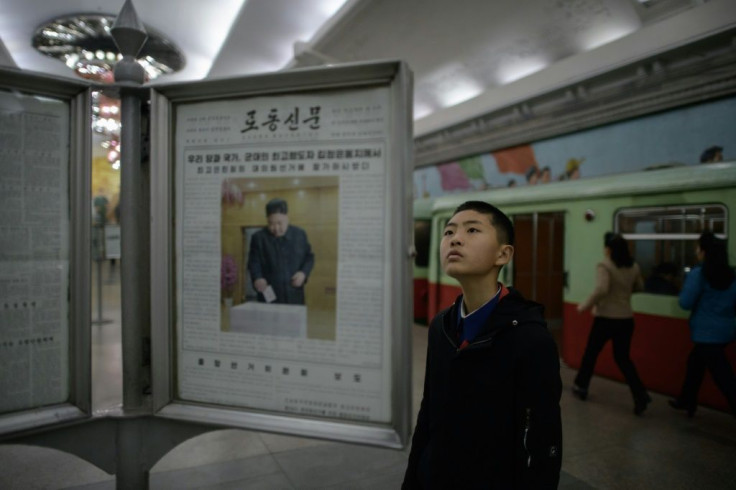
Voting styles are radically different on either side of the Demilitarized Zone that divides the neighbours -- which are technically still at war.
In the isolated, nuclear-armed North, citizens line up to cast ballots pre-printed with a single candidate's name, under the watchful gaze of portraits of the country's founder Kim Il Sung and his son and successor Kim Jong Il.
In the South, a plethora of parties compete in a rambunctious, sometimes ferocious, contest for power, deploying everything from social media campaigns to squads of party members bowing to commuters to seek support.
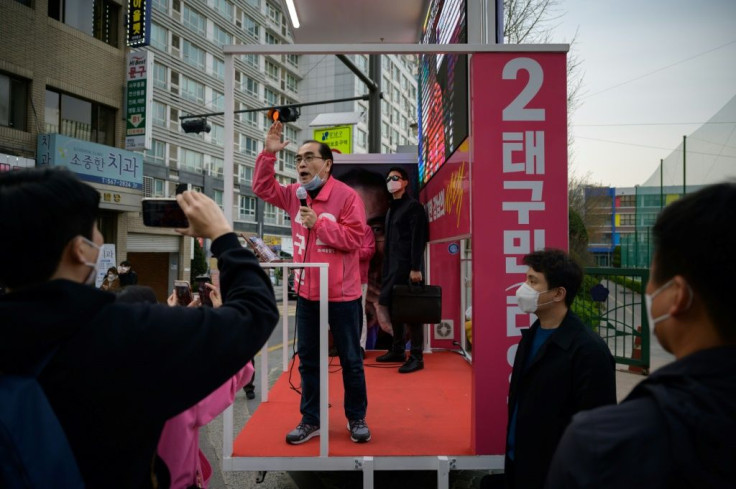
The April 15 vote will elect a new parliament through a mix of first-past-the-post constituencies like Thae's and proportional representation.
President Moon Jae-in's position is not at issue as he is directly elected, but the vote is largely a referendum on his performance.
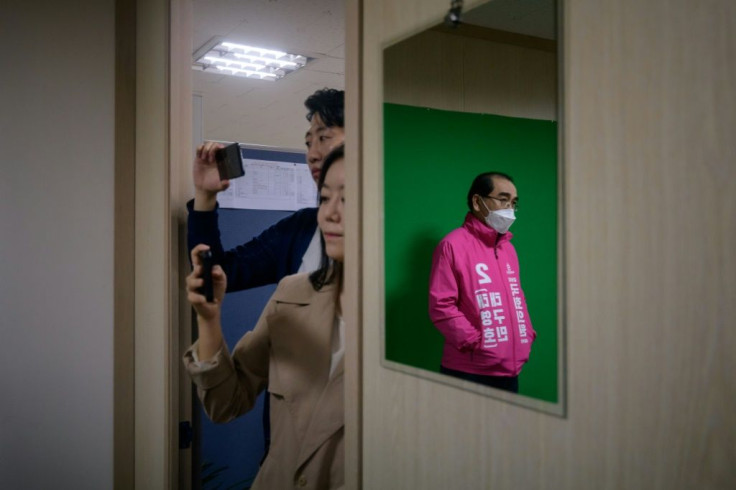
Thae comes from a family with good revolutionary credentials but fled his post in London in August 2016 after becoming disillusioned with Kim Jong Un's regime.
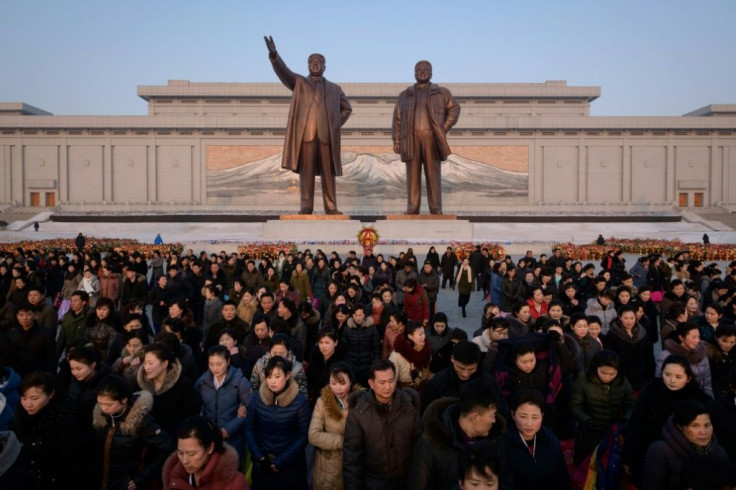
Thae said he defected to prevent his children -- who had lived in both Pyongyang and Europe -- living "miserable" lives in North Korea.
"Once in the outside world, you can't endure that kind of slavery," he added.
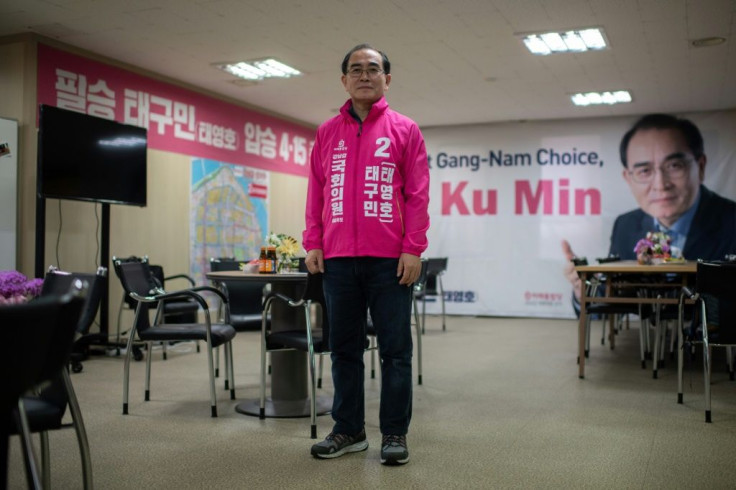
About 33,000 North Koreans have fled to the South in the past two decades, but it is rare for high-level officials to change sides.
Thae has since become a prominent and outspoken critic of North Korea and the engagement approach pursued by the South's Moon.
He joined the conservative United Future Party (UFP) -- the main opposition -- and has been rewarded with the candidate's nomination for a seat in Gangnam, one of its electoral strongholds.
In a bright pink jacket -- the colour of his party -- he has been out canvassing among its designer boutiques and luxury apartment complexes.
In South Korea's "bottom up" democracy, he said, each individual voter's support had to be secured "one by one".
"If you want to win, you have to go to the streets, you have to bow all the time, you have to say hello," he said.
There is no such campaigning in North Korea, he says.
The ruling Workers' Party has an iron grip on power and every five years holds an election for the rubber-stamp legislature, known as the Supreme People's Assembly.
Turnout at the last poll in March 2019 was 99.99 percent, the official Korea Central News Agency reported, and "one hundred percent of them cast their ballots for the candidates".
The exercise has all the trappings of democracy elsewhere, from electoral rolls to sealed ballot boxes, but in keeping with Pyongyang's enduring slogan of "single-minded unity", there is only one approved name on each paper.
The authorities, Thae said, "want to show the world that North Korea is a republic system. But actually it is a dynasty system."
"North Korea's election is top down," he went on. "If you win (the support of) Kim Jong Un then you can be in parliament."
The North's state media has denounced Thae as "human scum" and accused him of embezzling state funds, raping a minor and spying for South Korea in exchange for money.
He is considered a prime target for assassination -- North Korea is widely blamed for the poisoning of Kim's older brother Kim Jong Nam at Kuala Lumpur airport in 2017 -- and is accompanied by several bodyguards at all times.
Officially he is running as Tae Ku-Min -- a pseudonym he registered under on arrival in the South to initially make it harder for Pyongyang's agents to track him down.
Winning a parliamentary seat would be anything but low-profile, he acknowledged, but added: "In order to make a breakthrough or change, anyone must take a risk."
© Copyright AFP 2024. All rights reserved.







